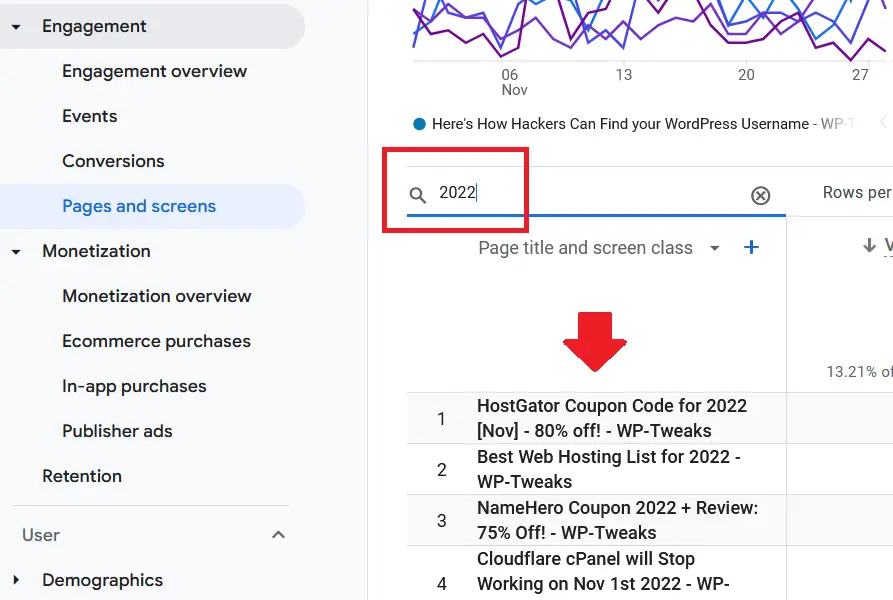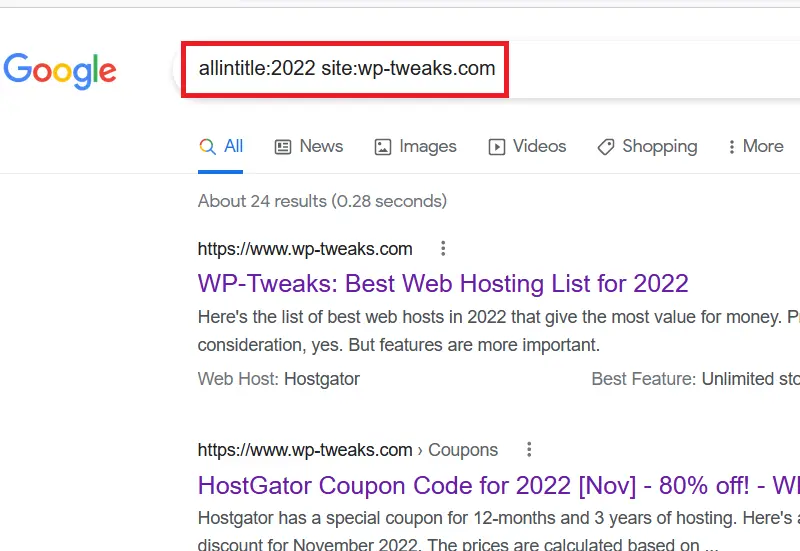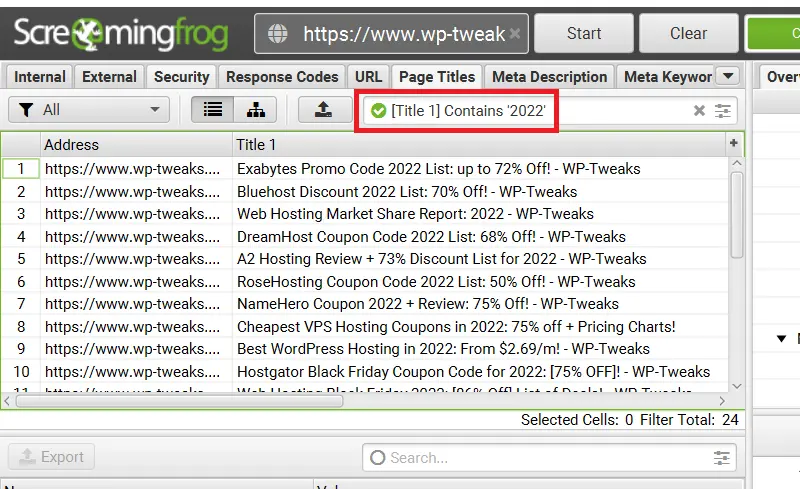As we approach the end of the year, Google’s John Mueller continues with the tradition of scaring us into not changing the page title to reflect the New Year. Take a look at his response to a tweet asking him about it:
According to Mueller, unless the content changes, we shouldn’t change the page’s title simply because we’re in a new year. Google sees a lot of low-quality spam sites that update the dates, and the implication is that if we don’t want Google to associate us with spam, then we shouldn’t change the year in our titles.
But Google (and John Mueller) is wrong. There are excellent reasons to change your titles for the user’s benefit.
Table of Contents
Users EXPECT You to Update the Year in your Title
Do we write content for users, or do we do it to please Google and John Mueller? Have we forgotten the first rule of SEO? Here it is in case you need to refresh your memory:
Write for users, not for search engines.
When a user types “best XYZ for 2024“, then NOT having the year in the title is criminal malpractice from an SEO point of view. Your user expects to see the year, so you give them what they want. If you don’t provide them with the year and your competitor does, then the click will go to your competitor and not to you.
From the point of view of users and competitors, including the year is the right and proper thing to do.
If your Content is Still Relevant – Why Not Update the Year?
Mueller implies that changing the year in your page title is deceptive. But how? If your content is still relevant in the next year, how on earth is it misleading to give the date? Are we supposed to understand that a list of “best widgets in 2024” will magically change just because the clock ticked from the 31st of December to the 1st of January?
The quality of an article is to be judged as is. It doesn’t matter what the title or the content was in the past. And if the page title and content are as relevant in the next year as it was in the previous year, then changing the title is not deceptive.
If the Year is in the Search Query, it Should be in the Title
There’s a simple rule to judge whether or not you should include the year in your title. The rule is “Will your visitor use the year in their search term”? If the answer is “yes”, your title should also have the year. If the answer is “never”, then there’s no benefit to having the year in the page title.
Users often include the year in the search query for lists, best deals, and reviews. They don’t use the date and year for “how to” articles and tutorials. Only you can judge which search terms your visitors use to search for your content.
When Should you Change the Year in Titles?
This question is trickier. For relevant pages, I change the year starting just after Christmas, as this gives enough time for search engines to pick up and index the new title. I can probably get away with updating the title even later, but this is a good compromise. Your mileage may vary.
4 Tools to Find Page Titles that Need Updating
I use the year on WP-Tweaks.com on many pages with web hosting deals. Here are three tools I use to find a list of page titles with the current year that I need to update to the following year.
1. Finding the Year in Page Titles with GA4 (Google Analytics)
If you’re a user of Google Analytics, then you can easily find the list of page titles containing the year. You can get this list by opening GA4, going to “Engagement -> Pages and screens” and entering the year in the search bar next to the report as shown here:

This is a quick way to get a list of page titles on your site with the year. The drawback is that if someone hasn’t viewed your page during the date range you choose, it won’t be on GA4. For a more extended period, this shouldn’t be an issue.
Another problem is that you might not use GA4 and don’t have data. If not, I suggest you follow this guide on how to install GA4 with tag manager.
2. Using Google Search to Find Page Titles with the Year
Another quick option is to open a Google search and type in the following query:
allintitle:year site:yoursite.com
This query will show you the results of all the pages that Google has indexed on your site that contain the year. For example, here are the results for my site WP-Tweaks.com:

This is slightly more accurate than using GA4 – probably because Google has indexed some pages that Analytics hasn’t picked up.
3. Using Screaming Frog to Filter the Year for Titles
If you’re using Screaming Frog, you can easily filter your report with the year to instantly get a list of page titles you should change. Open your site report and click the “Page Titles” tab. Then type the following in the search box below:
[Title 1] Contains ‘year‘
Screaming Frog will filter your page titles according to the year. Here’s a screenshot:

Screaming Frog is the most accurate of the three, but I find that it tracks closely with Google’s report. Both show me 24 page titles with the year, compared to Google Analytics which shows me 25.
4. Other SEO Tools like Ahrefs, SEMRush, and More
If you subscribe to an SEO tool like Ahrefs or SEMRush, you can use their site crawl report to filter page titles with the year. I don’t use either of these because they’re expensive. And ever since they got rid of the Ahrefs organic keywords report, I find it less and less useful. But all of these tools will do the job of finding what you need.
Conclusion: Don’t be Afraid to Include the Year in Page Titles
Despite Google’s and John Mueller’s remonstrances, there’s nothing wrong with including the new year in your page title. If users expect the year to be in the title, you’re doing what’s best for your visitors. As SEOs, we shouldn’t forget for whom we write.

Speak Your Mind